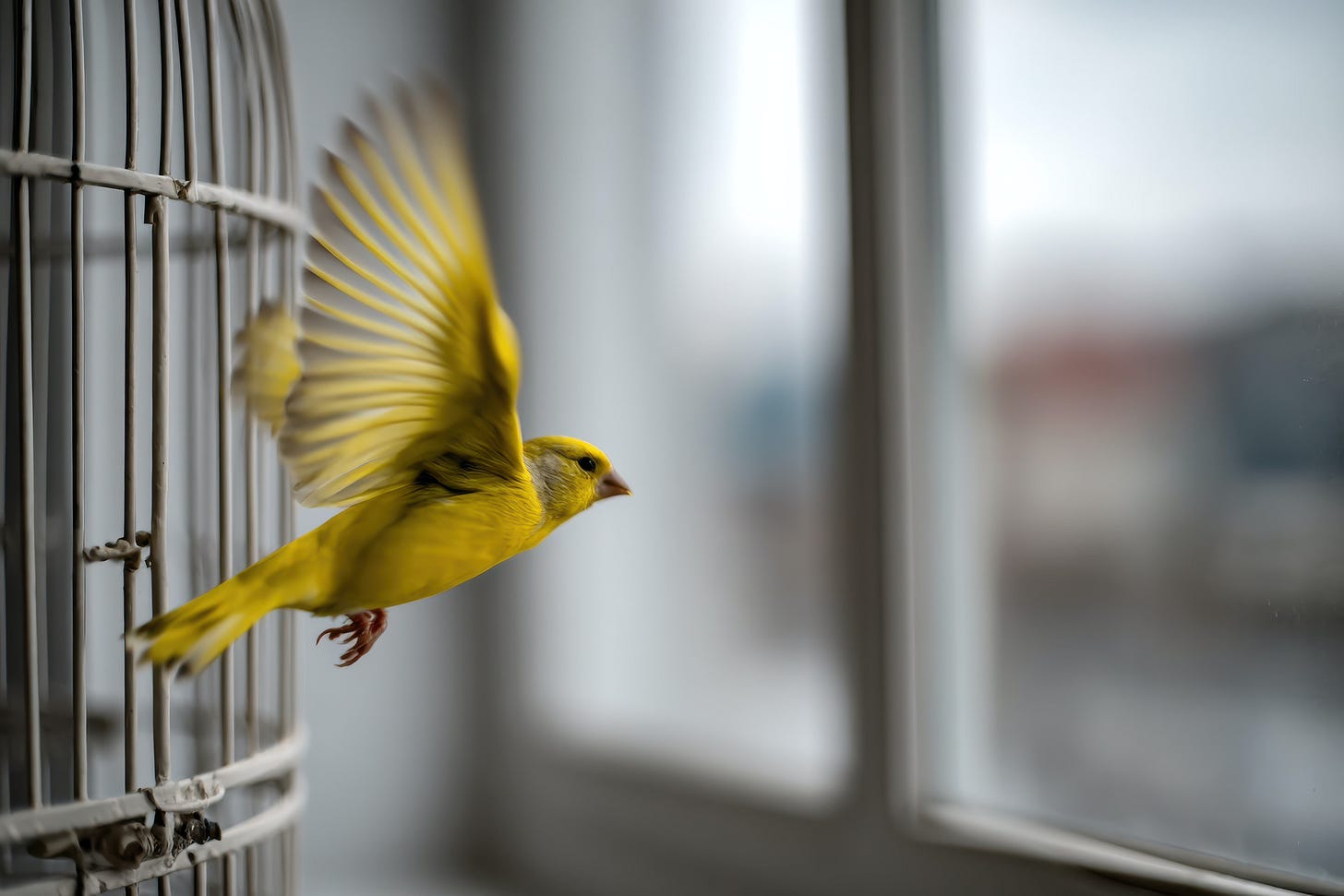Overprotected, Underprepared: How Coddling Shapes Adulthood
(🎧 Sneak peek of Episode #005 — dropping this week!)
Dear fellow Happy Neurotic,
Have you ever felt like you should be more independent, more confident, more capable, but instead you hesitate, second-guess yourself, or lean too heavily on others?
It’s easy to blame yourself for not being “strong enough” or “ready enough.” But what if the issue runs deeper? What if the very love and protection you received as a child is part of what left you unprepared for adulthood?
In our next episode of The Happy Neurotics Podcast, Dr. Todd and I explore how parental over-involvement can quietly undermine a child’s sense of agency. And why, as adults, the hidden legacy of being “overprotected” can leave us struggling to find our footing.
When Love Becomes Limiting
We often talk about the damage of neglect, but there’s another side of the spectrum that’s rarely named: coddling. Parents who hover, fix, and smooth over every bump in the road often believe they’re protecting their children. The intentions are usually good. They are often born from a desire to love and sometimes from their own unmet needs.
“The intent for parents who do this comes from their anxiety about their child struggling. It’s so uncomfortable for them to watch, they rush in to protect the child from distress.” — Dr. Todd
But as Dr. Todd Berntson and I explore in our upcoming episode of The Happy Neurotics Podcast, this form of over-involvement can quietly undermine a child’s growth.
Imagine going to the gym and never being allowed to lift the weights yourself because someone else always steps in. You’d walk out weaker than when you arrived. That’s exactly what happens when children and young adults are shielded from life’s natural struggles, they never get to build the muscles of resilience, confidence, and agency.
Research backs this up: a 2022 systematic review of 68 studies found that the majority reported a direct positive association between helicopter parenting and higher levels of anxiety and depression in both children and adults who experienced high parental over-involvement (Segrin & Yeo, 2022).
The Hidden Cost of Parental Over-involvement
Over-involvement doesn’t always look dramatic. It can be as subtle as:
Parents stepping in to argue with teachers about grades.
Homework “help” that turns into parents doing the assignment.
Shielding children from every disappointment or mistake.
As children, we may not notice. As adults, the consequences are clearer: difficulty leaving home, relying on others to make decisions, or finding ourselves in relationships where we’re constantly “mothered.”
A 2025 study of 800 young adults in Turkey found that higher levels of perceived parental over-involvement were significantly negatively correlated with self-determination and positively correlated with fear of intimacy (Aydın & Yalçın, 2025).
And just like neglect, overprotection stems from trauma. Parents who coddle often experienced emotional neglect in their own childhood. If they haven’t learned to meet their own emotional needs as adults, they might project them onto their children.
“A lot of parents who overprotect had a history of neglect themselves. They give to their children what they longed for, without seeing what their child truly needs — usually more autonomy and freedom.” — Dannie
Two Sides of the Same Coin
Here is a truth not many people talk about: neglect and overprotection might seem like opposites, but they’re really two sides of the same wound. Both are a form of emotional neglect and deny a child the balance they need.
Neglected children may grow up resilient and resourceful, but often carry deep feelings of worthlessness.
Coddled children may grow up feeling loved and protected, but often struggle with a deep sense of lack of agency, competence, and direction.
Neither path is ideal, and both leave scars. But the good news is that awareness is the first step toward healing.
Reclaiming Agency as Adults
So what can you do if you recognise yourself here? How do you rebuild your confidence?
Here are a few practices we talk about in the episode:
Notice your relationships. Do you tend to attract people who “mother” you, who always take over decisions? Instead of resenting it, ask what payoff you’re getting from that dynamic. Maybe it’s an unconscious way of avoiding risk or responsibility. That’s your growth edge right there.
Start small. Put something on the calendar that’s yours alone. Make a choice about what you want to do, not what someone else expects.
Practice tough love with yourself. If you grew up with suffocating love, you may need more of that firm, fatherly energy, the voice that says, “Get up, try again, you’ve got this.”
Seek balance. Life isn’t about rejecting care or comfort. It’s about knowing when you need support, and when you need to step into discomfort so you can grow. And that’s a work in progress for most of us!
“Nobody jumps in the pool for the first time and swims like a champ. It’s all about taking chances and being willing to make mistakes.” — Dr. Todd
Why This Matters
Over-involvement isn’t talked about much, but its impact is real. Adults who were overprotected often struggle to leave home, build independence, or believe in their own capabilities. Understanding the pattern is the first step to reclaiming a sense of agency. Because the truth is what happened in childhood isn’t our fault, but as adults it is our responsibility to reclaim our power. And, that can absolutely be done.
Although it might take time, if you take it one step at a time, you can eventually do a better job at parenting yourself than your parents did.
And if this article sparked something in you as a parent, please be kind to yourself. This isn’t about blame. We are all flawed humans doing the best we can with the tools we have. The fact that you’re reading this shows you care. It might also be the perfect opportunity to ask yourself: how may my own childhood have affected the way I am showing up today? What did I need back then and how can I give myself more of that now? That’s the first step to breaking the cycle.
🎧 Want to go a little deeper? Join us this Wednesday on The Happy Neurotics Podcast and listen in to episode #007: Overprotected, Underprepared: How Coddling Shapes Adulthood. We’ll share more stories, therapist insights, and easy steps to help you regain a sense of agency and confidence.
💬 Reflection question: Were you more neglected or overprotected growing up — and how does that show up in your adult life? Hit reply and share your story, we’d love to hear from you.
Warmly,
Dannie
References
Aydın, U., & Yalçın, İ. (2025). The effect of perceived helicopter parenting on self-determination and fear of intimacy: The mediating role of basic psychological needs satisfaction. Frontiers in Psychology, 16, 1538570. https://doi.org/10.3389/fpsyg.2025.1538570
Segrin, C., & Yeo, B. (2022). Helicopter parenting and its relation to emotional and behavioral problems in emerging adults: A systematic review. International Journal of Environmental Research and Public Health, 19(10), 6241. https://doi.org/10.3390/ijerph19106241





